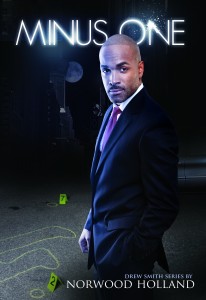The Colored Section of Bookstores
September 20, 2011

by Yolanda M. Johnson-Bryant the founder and CEO of Bryant Consulting. Her consulting firm provides a variety of services to new and established writers, including ghost writing, manuscript editing, character development, and marketing. See YolandaMJohnson.com
and LiteraryWonders.com
African-Americans have come a long way in the literary industry. More and more black authors are emerging onto the markets, be in via traditional publishing or self-publishing. This is good news to our authors and readers, but we have to admit—we have a long way to go.
As authors, we have made our mark in bookstores. Let me correct that—non African-American bookstores. Now, when a patron walks into a bookstore such as Borders, Barnes and Noble or even Wal-mart, a reader can find our section with ease; the “colored section” if you will.
No, this is not about race—not necessarily. This is more so about activism. Should our books have their own section in bookstores? Yes and no. A consumer should be able to walk into a bookstore and browse bookshelves by genre like they can any other book. By doing so, would close yet another notch in the belt of segregation.
However, the reality is that a lot of African-American authors would lose out if this was to happen; right now at least. Currently, when a reader learns of a new book by their favorite author, or a new author, it is so easy for them to head straight to the “colored section” to find the book they are looking for, and even then, there is no guarantee the book will be available.
Another frustrating factor of the “colored section” is the lack of variety of our books and the lack of quantity. Many bookstores may confine AA (African-American) books to one kiosk, or at best, a two-sided book shelf or corral. I often wonder how African-Americans would feel if this section was larger. Would we complain about the segregation of our books then? Perhaps so; but I get the feeling that there would be less complaints about the section, and more complaints about something else.
Could it be that African-Americans cringe at the thought of actually having to socialize amongst the proper folk and subject themselves to something outside of their comfort zone? This could be it, or perhaps another factor could be that we don’t want to take the time that it would take to saunter somewhere other than the “colored section” to find the book we are searching for. I’d say that all of the above might be true.
Earlier, I mentioned that this was not a matter of race but activism. Bookstores don’t get a free pass when it comes to the part they play in the “colored section” because they are guilty, guilty, guilty! Contemplate this: Just like we made our presence known in the literary industry, we can also make our presence known in bookstores and make our voices heard. Everywhere you look, there is a campaign for this or a campaign for that. Why not start a campaign to either make the “colored section” larger and with more variety or mixing our titles amongst the “house books” if you will.
Talk to your local bookstore managers and associates, write letters, start a Facebook page—something other than Like Me if You Like My Farmville Page. Let’s also hold publishers accountable for joining forces with authors and readers so we can do something about that little violation problem in bookstores. African-Americans will boycott a local restaurant because they didn’t have catfish on the menu, but won’t boycott a bookstore so that our books will have a better presence in their establishment.
By doing this, we challenge our readers to come in from the cotton fields and mingle in the country club, and at the same time, expanding our horizons. As African-Americans, we can no longer sit about and complain about things and do nothing about them. With the takeover of e-books and the closing of bookstores, our books will be diluted in the process. Take action or kindly put up your Baptist finger and excuse yourself.




